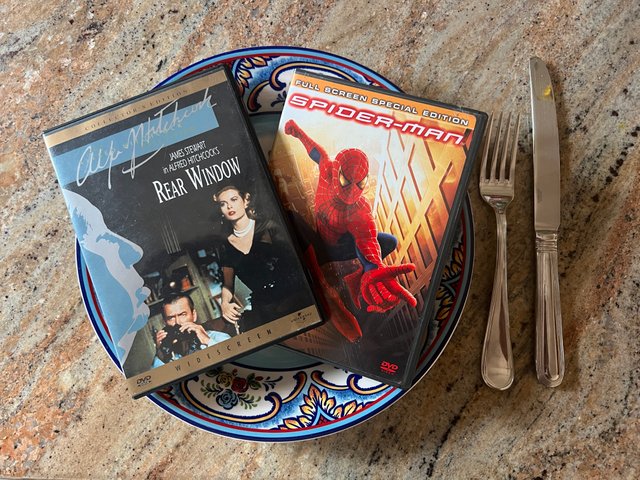First published here. This article will also be published in the near future on my blog runningwildfilms.com and my Facebook page

There's a lot of talk about what we eat and how it effects our health. What's often ignored is the quality of our mental consumption, specifically the kind of visual entertainment we take in on a weekly basis. Over the years, I have seen first hand just how much a person's film diet can change their behavior and well-being.
Let's take one of my longtime friends as an example. When we catch up after not seeing each other for a while and all he's watched is episodic television, his senses are dulled. His mind isn't sharp. It's like he's been eating fast food burgers day after day for weeks and the results are sluggish. I'm not suggesting there isn't good episodic TV but as a storyteller, the Scooby-Doo like formulas most of them apply with the same schtick every week is like watching a hamster run around on a wheel.
By contrast, when my friend watches quality films the effect is the opposite. I remember a few years ago, I re-introduced him to a certain French filmmaker. For weeks, his brain was stimulated, his creative juices flowing, even his body seemed to be more active. It was literally as if he changed his diet and a healthier version of himself emerged.
I'm a big believer that what goes in comes out. Most of us see it that way when it comes to food but we don't realize the negative effects of bad storytelling. You can't run a marathon (at least not well) if you eat cheeseburgers for every meal and you can't make good entertainment if all you watch is the movie equivalent of junk food. Now don't get me wrong, I love a greasy cheeseburger as much as the next person but in moderation. The same goes for film consumption. I might enjoy a cheap B-movie now and then (though I'd argue the ones I seek out are the fast food equivalent of In-N-Out) but I try to balance my film diet with healthy meals. When I return to John Ford, it feels like eating a big plate of meat and potatoes. When I watch David Lean, it's a full five course meal. When I turn to foreign cinema like Robert Bresson, it's like eating at a gourmet restaurant. You can taste the richness of great cinema. The effect is enlightening.
If you're not feeding yourself good films, your diet will reflect itself in the appearance of your work, and pardon the crass example, but all you produce might be diarrhea.
So true! Well, you know, we don't have a TV. Nevertheless, we like (in homeopathic doses) good films. There are a lot of them - most of them are a bit older ;-)) What I find disturbing is that many of these films, which I found impressive, are suddenly no longer politically correct because their actors or producers are nowadays involved in a scandal, are confronted with terrible accusations. Surely one can no longer find such things good!? And yet they are still the same wonderful films...
So wahr! Weißt Du, wir haben keinen Fernseher. Trotzdem mögen wir (in homöopathischen Dosen) gute Filme. Es gibt eine Menge davon - die meisten sind schon etwas älter ;-)) Was ich verstörend finde: viele dieser Filmwerke, die ich beeindruckend fand, sind auf einmal nicht mehr politisch korrekt, weil ihre Darsteller oder Produzenten heutzutage in einen Skandal verwickelt sind, mit schlimmen Vorwürfen konfrontiert werden. So etwas darf man doch nicht mehr gut finden!? Dabei sind es noch immer die gleichen wunderbaren Filme...
Downvoting a post can decrease pending rewards and make it less visible. Common reasons:
Submit
Personally, the scandals do not effect the way I watch the films. The work is the work. Personal life is personal life.
Downvoting a post can decrease pending rewards and make it less visible. Common reasons:
Submit